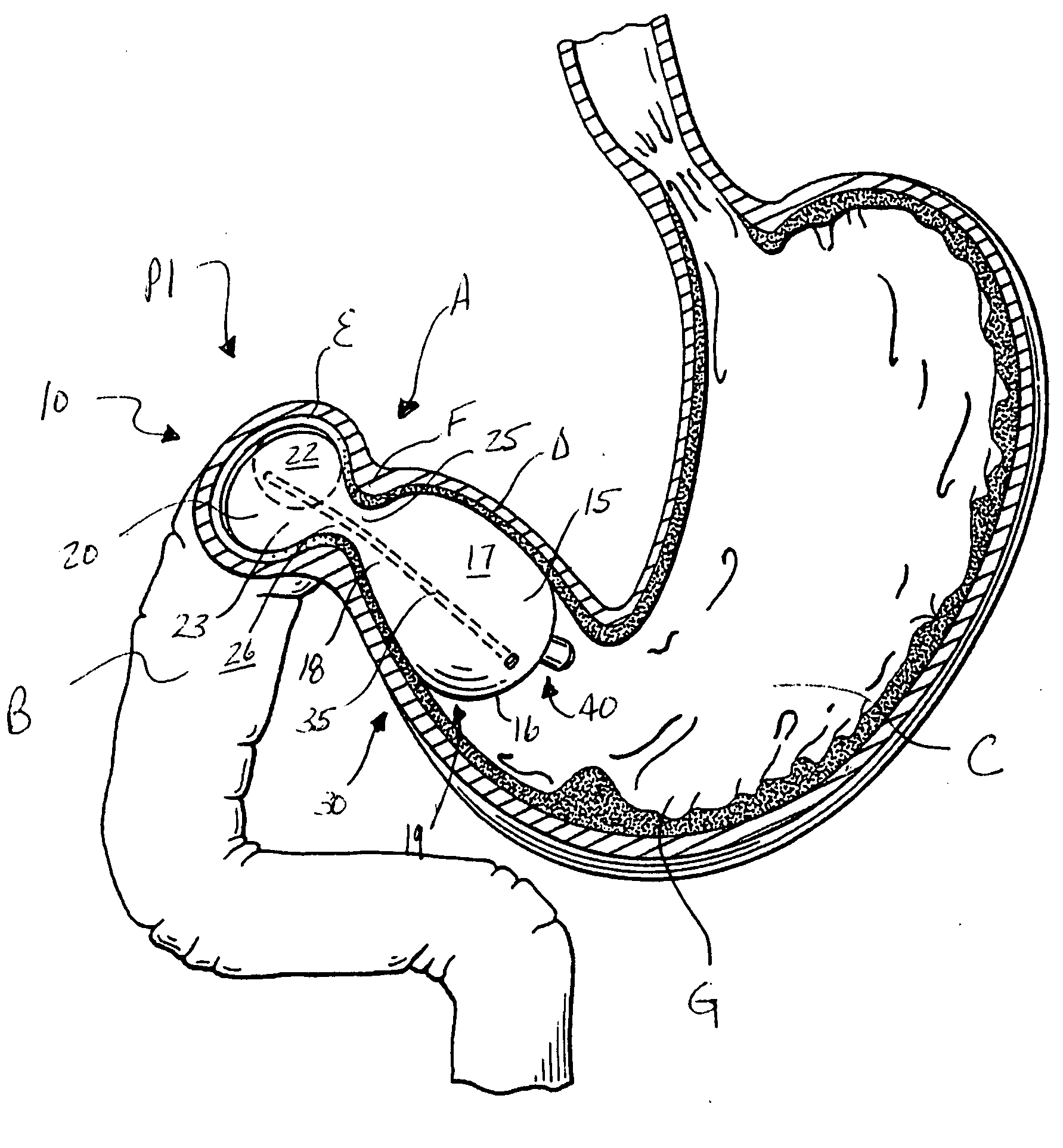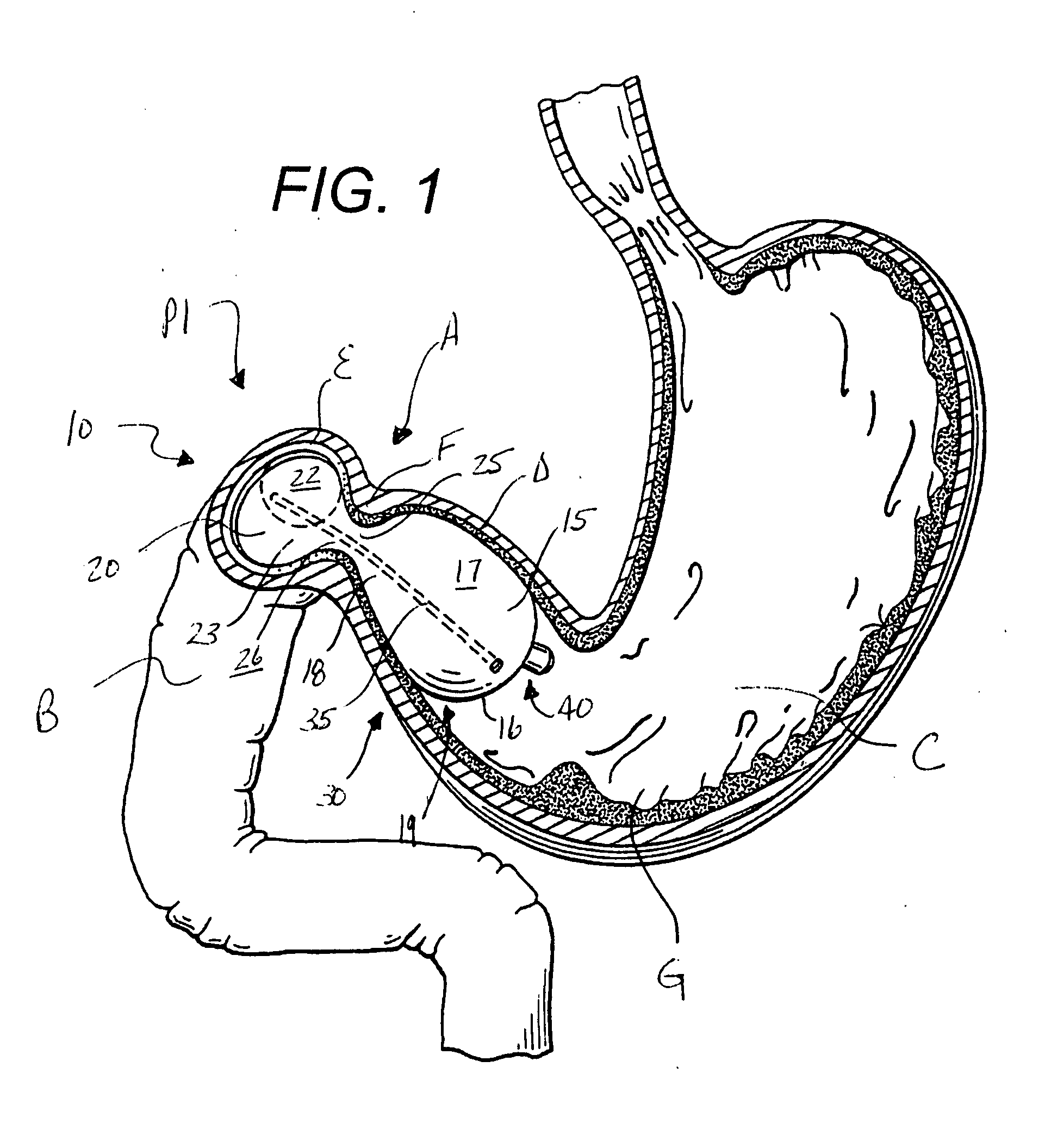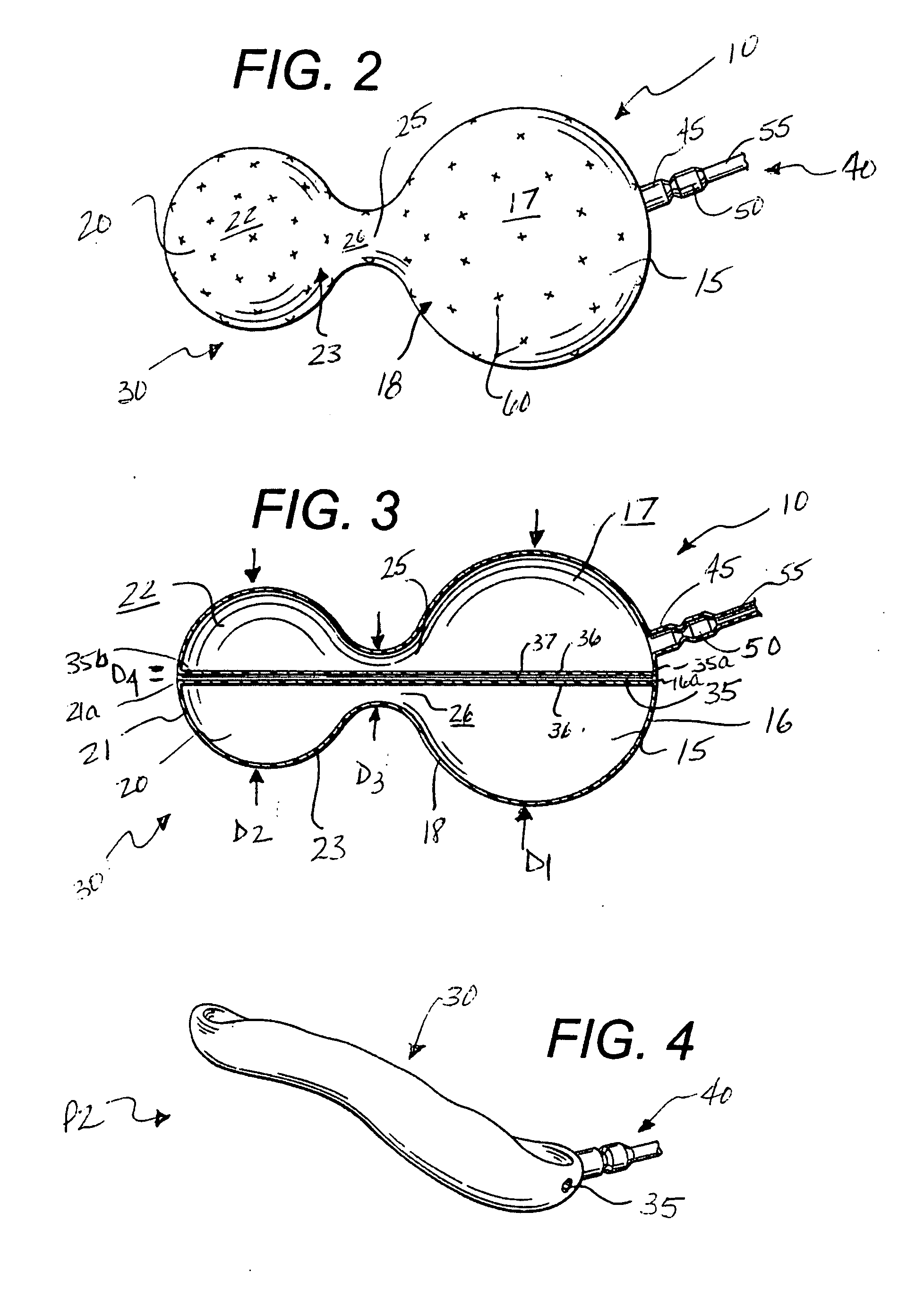Method for treating obesity using an implantable weight loss device
a weight loss device and weight technology, applied in the direction of diaphragms, obesity treatment, surgery, etc., can solve the problems of direct and indirect costs of overweight and obesity, weight gain, and overweight and obesity, so as to reduce the volumetric capacity of the passageway, reduce the diameter of the passageway, and reduce the amount of chyme that may pass through the device
- Summary
- Abstract
- Description
- Claims
- Application Information
AI Technical Summary
Benefits of technology
Problems solved by technology
Method used
Image
Examples
Embodiment Construction
[0028]The present invention is not intended to be limited to the above-mentioned embodiment. It is easily understood for those ordinary skilled in the art that there are also various modifications or alternatives without departing the conception and principle of the present invention. The scope of the present invention is defined by the appended claims.
[0029]FIGS. 1-12 depict an inflatable weight control device 10 that is implanted in a patient's digestive track to form a gastric outlet obstruction 19. As explained in greater detail below, an endoscope is used to implant the weight control device 10 within the pylorus A and between the duodenum B and stomach C. While the human digestive track includes many components, only those that are relevant to the present invention are shown in the Figures. The pylorus A is the region of the stomach C that connects to the duodenum B, and that includes three parts: the pyloric antrum D which connects to the body of the stomach C; the pyloric ca...
PUM
 Login to View More
Login to View More Abstract
Description
Claims
Application Information
 Login to View More
Login to View More - R&D
- Intellectual Property
- Life Sciences
- Materials
- Tech Scout
- Unparalleled Data Quality
- Higher Quality Content
- 60% Fewer Hallucinations
Browse by: Latest US Patents, China's latest patents, Technical Efficacy Thesaurus, Application Domain, Technology Topic, Popular Technical Reports.
© 2025 PatSnap. All rights reserved.Legal|Privacy policy|Modern Slavery Act Transparency Statement|Sitemap|About US| Contact US: help@patsnap.com



